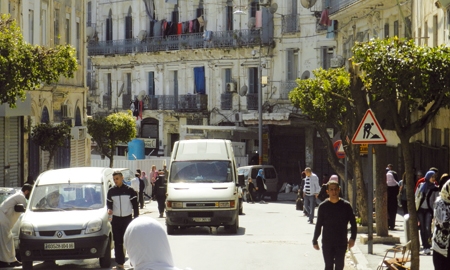In Algeria, the government committed itself to large-scale plans aimed at solving the lack of public real estate and precarious housing conditions. Hafid Fassouli, President of
SGP INDJAB, makes the point clear: “The initial goal was set at 1.2 million accommodation units, yet it is now up to 2.45 million. This programme was designed for the poorest people and real estate issues are considered through a social housing perspective.”
INDJAB’s mission is to implement this ambitious housing programme, with the help of a $50 billion (£32 billion) budget allocated for 2010-2014, a 20 per cent increase on the previous scheme. In order to reach their objectives, public authorities decided to boost the failing building industry that suffered from a lack of investment even before the ‘Black Decade’. Hence the reorganisation of INDJAB, which is now structured around four main activities. “Studies, realisation, promotion and construction, controlled by the management at every step of the building process,” Mr Fassouli explains.
As existing concrete industry production capabilities are no match for the current needs of the sector, the involvement of foreign companies in partnerships is crucial to the viability of large-scale infrastructure programmes. INDJAB is no exception, and in order to meet its objectives over the next five years it too will have to develop partnerships. In that regard, Mr Fassouli further stresses: “I am a strong supporter of local and foreign partnerships. The future of Algerian entrepreneurship relies on these partnerships. All of our contracts are made within the ANDI framework, and the key factors here are the incentives to develop bonds between partner parties and the colossal existing market.”
INDJAB’s fields of activities include not only standard construction methods but also prefabrication; the group is close to establishing joint ventures dedicated to light prefab construction industrialisation processes. Mr Fassouli says, “We are currently discussing with potential Spanish partners who have developed a very promising modular moulding system that provides both a high standard of production as well as a great productivity rate. We are also negotiating with an Italian company regarding the construction of a prefab factory – the first of its kind in Algeria. This factory will provide us with the ability to ship a high number of easy-to-build, seismic-resistant type of accommodation that can be assembled on the construction site.”
At a national level, INDJAB’s four largest research departments are developing projects with French, Canadian and Korean partners for the enlargement of existing airport platforms and the energy-friendly town hall of the new city of Boughezoul. “Due to the European crisis, Italian, Spanish and French firms are keen to become real players in our market, even by delocalising part of their activities to Algeria,” says Mr Fassouli.

0 COMMENTS